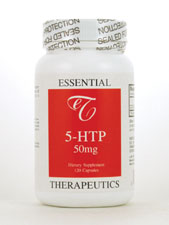The True Cause of Fibromyalgia
 Fibromyalgia is now thought to arise from a miscommunication between the nerve impulses of the central nervous system. The neurons, which supply the brain, become more excitable, exaggerating the pain sensation. This over-amplification of pain is referred to as “central sensitization”.
Fibromyalgia is now thought to arise from a miscommunication between the nerve impulses of the central nervous system. The neurons, which supply the brain, become more excitable, exaggerating the pain sensation. This over-amplification of pain is referred to as “central sensitization”.
Fibromyalgia patients have a reduction in their pain threshold (allodynia), an increased response to painful stimuli (hyperalgesia) and an increase in the duration of pain after nociceptor stimulation (persistent pain).
Individuals with fibromyalgia syndrome have low levels of serotonin, a 4-fold increase in nerve growth factor, and elevated levels of substance P. Nerve growth factor (NGF) is a member of a family of peptides known as the neurotrophins. The exposure of nociceptive sensory neurons to NGF leads to up-regulation of substance P in sensory neurons.
Substance P, the neuropeptide in spinal fluid, is a neurotransmitter that is released when axons are stimulated. Increased levels of substance P increase the sensitivity of nerves to pain or heighten awareness of pain. Although it’s not fully understood, fibromyalgia patients have an imbalance of the hypothalamus-pituitary-adrenal (HPA) axis. This imbalance creates hormonal inconsistencies, which disrupt the body’s ability to maintain homeostasis.
Many of the most common fibromyalgia symptoms including widespread muscle pain, fatigue, poor sleep, gastrointestinal problems, and depression regularly occur in people with various neuroendocrine disorders, including those manifested by HPA dysfunction.
Researchers believe suppression of the HPA (quite likely from chronic stress), which results in lowering human growth hormone (HGH), dehydroepiandrosterone (DHEA), cortisol, and other hormones, is aggravated by the chronic pain and poor sleep associated with fibromyalgia.
Hypothalamus-Pituitary-Adrenal Axis (HPA) Dysfunction
The main function of the hypothalamus is homeostasis, or maintaining the body’s status quo.
The hypothalamus receives and transmits messages from the nervous system and hormonally through the circulatory system. Because of its broad sphere of influence, the hypothalamus could be considered the body’s master computer. The hypothalamus receives continuous input about the state of the body, and must be able to initiate compensatory changes if anything drifts out of line.
The Hypothalamus regulates such bodily functions as:
- Blood pressure- is often low in those with fibromyalgia.
- Digestion- bloating, gas, indigestion, and reflux are common in FMS patients.
- Circadian rhythms (sleep/wake cycle)- which is consistently disrupted in FMS.
- Sex drive- loss of libido is a common complaint for FMS patients.
- Body temperature- is often low in FMS patients.
- Balance and coordination- FMS patients have balance and coordination problems.
- Heart rate- mitral valve prolapse (MVP) and heart arrhythmias are a common finding in FMS patients.
- Sweating- it’s not unusual for FMS patients to experience excessive sweating.
- Adrenal hormones- are consistently low in FMS patients.
- Thyroid hormones and metabolism-hypothyroid is a common finding in FMS patients.

Recent studies show that over 43% of FMS patients have low thyroid function. It’s estimated that those with FMS are 10 to 250,000 times more likely to suffer from thyroid dysfunction.
A Vicious Cycle
- Chronic stress disrupts HPA homeostasis, leading to allodynia.
- Chronic pain disrupts the circadian rhythm.
- Dysfunction in the circadian rhythm results in poor sleep.
- Poor sleep reduces growth hormone production, leading to poor repair of damaged muscle fibers, poor memory, fatigue, suppressed immune function, and more pain.
- Increased pain further disrupts sleep and leads to depletion of stress coping chemicals including serotonin.
- A reduction in serotonin causes an increase in the neurotransmitter, substance P. Substance P enhances pain receptors, creating even more pain.
- Poor sleep and ongoing stress lead to fatigue, mood disorders, IBS and may cause thyroid dysfunction.
- Chronic stress contributes to adrenal fatigue, decreased DHEA, and lowered resistance to stress. Decreased stress coping abilities then lead to lowered immune function.
- Lowered blood volume from adrenal dysfunction (and resultant hypotension) leads to further fatigue.
Stress and Fibromyalgia
A survey by The Fibromyalgia Network reports that 62% of their respondents list physical or emotional stress as the initiating factor in their acquiring fibromyalgia.
I believe chronic stress is the underlying catalyst for the onset of HPA dysfunction and fibromyalgia. Several studies have demonstrated how chronic stress undermines the normal hypothalamic-pituitary-adrenal axis (HPA) function.
When explaining the role of stress in fibromyalgia, I find the following analogy helps put stress and fibromyalgia into perspective.
“We are all born with a stress coping savings account. This account is filled with numerous chemicals we use to help us deal with daily stress-serotonin, norepinephrine, cortisol, magnesium, and other important hormones and nutrients. The more stress we encounter, the more stress coping chemicals we use. We replenish our stress coping savings account with adequate rest. Consistent deep restorative sleep ensures we are making more deposits than withdrawals from our stress coping account.
Since fibromyalgia patients struggle with getting a consistent good nights sleep they eventually bankrupt their stress coping account.
Treatment
No doubt about it, treating fibromyalgia patients and their plethora of symptoms can be intimidating. There are several hormonal, nutritional and biochemical deficiencies that must be corrected before a patient can truly beat fibromyalgia. However, I’ve consistently found that many of the most troubling symptoms associated with fibromyalgia, poor sleep, fatigue, chronic pain, IBS, mood disorders, and “brain fog,” are diminished (sometimes dramatically) when serotonin levels are boosted and normal circadian rhythms restored.
The Importance of a Good Night’s Sleep
 Studies have shown that individuals who were prevented from going into deep sleep for a period of a week develop the same symptoms associated with FMS and CFS; diffuse pain, fatigue, depression, anxiety, irritability, stomach disturbances, and headaches.
Studies have shown that individuals who were prevented from going into deep sleep for a period of a week develop the same symptoms associated with FMS and CFS; diffuse pain, fatigue, depression, anxiety, irritability, stomach disturbances, and headaches.
Sleep deprivation markedly increases inflammatory cytokines (pain causing chemicals)—by a whopping 40%.
Serotonin
Serotonin helps regulate sleep, digestion, pain, mood, and mental clarity.
Serotonin helps:
- Raise the pain threshold (have less pain), by blocking substance P.
- You fall asleep and stay asleep through the night.
- Regulate moods. “The happy hormone” reduces anxiety and reduces depression.
- Reduce sugar cravings and over-eating.
- Increase a person’s mental abilities.
- Regulate normal gut motility (transportation of food-stuff) and reverse irritable bowel syndrome (IBS).
Surveys have shown that as many as 73% of FMS patients have irritable bowel syndrome.
You have more serotonin receptors in your intestinal tract than you do in your brain.
Emotionally stressful situations cause the body to release adrenaline, cortisol and insulin. These stress hormones stimulate the brain to secrete serotonin. Long term stress and poor dietary habits can deplete the body’s serotonin stores.
Tryptophan, 5 Hydroxytryptophan (5HTP) and Serotonin
Individuals with fibromyalgia have low levels of tryptophan, serotonin, and
5-HTP.40 Studies show that fibromyalgia patients have higher levels of metabolites in the kynurenine pathway, which diverts tryptophan away from serotonin production.
Tryptophan is one of eight essential amino acids. Tryptophan is absorbed from the gut into the bloodstream and then dispersed throughout the body. Ninety percent of tryptophan is used for protein synthesis, one percent is converted to serotonin, and the balance is used to make niacin. In the formation of serotonin, tryptophan is hydroxylated to 5-hydroxy-tryptophan (5-HTP) by tryptophan hydroxylase.
5-HTP is converted to serotonin by the decarboxylase enzyme, which is vitamin B6 dependent. Tryptophan is transported across the blood-brain barrier via a transport molecule, which also carries leucine, isoleucine, and valine, and prefers leucine.
However, 5-HTP easily crosses the blood-brain barrier and does not utilize this transport mechanism; thus, it does not compete for passage through the blood-brain barrier with these amino acids.
And unlike tryptophan, which is made from bacterial fermentation (and hence subject to contamination), 5HTP is derived from the West African plant Grifonia simplicifolia.
In the body, 5-HTP is converted directly in to serotonin. It is not broken down by tryptophan pyrrolase, and does not have to compete for transport across the blood-brain barrier.
Selective Serotonin Reuptake Inhibitor (SSRI) Medications
 Prescription antidepressants can be helpful. However, antidepressant drugs have potential side effects including anxiety, depression, fatigue, decreased sex drive, and disruption of normal circadian rhythms.
Prescription antidepressants can be helpful. However, antidepressant drugs have potential side effects including anxiety, depression, fatigue, decreased sex drive, and disruption of normal circadian rhythms.
SSRI’s are supposed to help a patient hang onto and use their naturally occurring stores of the brain chemical serotonin. It’s like using a gasoline additive to help increase the efficiency of your cars fuel.
Most of the patients I see with fibromyalgia are running on fumes and a gasoline additive won’t help.
Please keep in mind that several studies show that between 19-70% of those taking antidepressant medications do just as well by taking a placebo or sugar pill.
I recommend my patients boost their serotonin levels by taking 5HTP.
5HTP and Depression
Studies (including double-blind) comparing SSRI and tricyclic antidepressants to 5HTP have consistently shown that 5HTP is as good if not better than prescription medications in treating mood disorders. Furthermore, 5HTP doesn’t have some of the more troubling side effects associated with prescription medications.
5HTP and Sleep
5HTP has been shown to be beneficial in treating insomnia, especially in improving sleep quality by increasing REM sleep and increases the body’s production of melatonin by 200%.
5HTP and Fibromyalgia
Double-blind placebo-controlled trials have shown that patients with FMS were able to see the following benefits from taking 5HTP:
- decreased pain.
- improved sleep.
- less tender points.
- less morning stiffness.
- less anxiety.
- improved moods in general, including in those with clinical depression.
- increased energy.
Irritable Bowel Syndrome, 5HTP and Serotonin
 There are more serotonin receptors in the intestinal tract than there are in the brain. This is one reason people get butterflies in their stomach when they get nervous.
There are more serotonin receptors in the intestinal tract than there are in the brain. This is one reason people get butterflies in their stomach when they get nervous.
The brain and gut are connected through the neuroreceptors 5-hydroxytriptamine-3 (5-HT3) and 5-hydroxytriptamine-4 (5-HT4). These serotonin receptors regulate the perception of visceral pain and the gastrointestinal (GI) motility. Serotonin controls how fast or how slow food moves through the intestinal tract.
It’s common for the symptoms associated with IBS, diarrhea and constipation, to disappear within 1–2 weeks once serotonin levels are normalized with 5HTP replacement therapy.
My 5HTP and Sleep Restoration Protocol
I instruct my patients to take 50mg of 5HTP 30 minutes before bed on an empty stomach (90 minutes after or 30 minutes before eating), with 4 ounces of grape juice. I know 5HTP doesn’t have to compete with other amino acids to cross the blood brain barrier, but this routine seems to heighten the effect of 5HTP.
One of three things will happen when taking 5HTP.
- The patient falls asleep within 30 minutes and sleeps through the night. If so, they stay on this dose until their next scheduled visit with me (typically 2 weeks).
- Nothing happens. This is typical response to such a low dose. The patient should add an additional 50 mg. each night (up to a max of 300 mg.) until they fall asleep within 30 minutes and sleep through the night.
- Instead of making the patient sleepy, the first dose makes them more alert. This occurs more often in CFS and chemical sensitivity patients who have a sluggish liver. If this happens, they’re to discontinue taking 5HTP at bedtime and instead take 50 mg. with food for 1–2 days. Taking 5HTP with food seems to help slow down it’s absorption, allowing the liver to process it more effectively. Taking 5HTP with food will not (usually) make a person sleepy. After 1-2 days on 5HTP with no further problems, they should increase to 100 mg. of 5HTP with each meal (300mg a day).
You can learn more about my sleep protocols, and all my fibromyalgia protocols in my book, Treating and Beating Fibromyalgia and Chronic Fatigue Syndrome





Thank you, so far you have hit the head on the problems that I suffer and I am ever hopeful that I will continue to find help and relief from your studies. I am unable to work yet, and I have been turned down for disability and, need to find out what to do for help with my finances.
Thank you for your work and continued help.
Sincerely,
Lisa
It was very interesting to read your report. I have suffered from the worst fibro pain ever the past 2 months. It was interesting to see, among the long list of my problems, were listed in your report. I am wondering if you make this product available to people who are not your patients. And of course price is a big factor because we live on Social Security and it is very limited. And I am sure that insurance doesn’t cover this. But I am interested in learning some more about it. Thank you very much.
You can learn more in my book http://www.getfibrobooks.com and the more about the Jump Start Package I recommend at
https://essentialtherastore.com/collections/frontpage/products/fibromyalgia-cfs-jumpstart-package
I have been diagnosed with Fibromyalgia and restless leg syndrome for well over 10 years now. I would be excited to try a new technique, as I feel I have gone about as far as rigid traditional medicine will take me
I am 49 years of age and I feel it needs to be now or never. Please consider me in your trial.
God Bless!
Hi Angela this isn’t a trial but a proven treatment program. You can learn more at the http://yourfibrosolution.com/ site under consults.
Where do you get 5HTP?
You can get our 5 HTP by Essential Therapeutics by visiting this link: https://essential-therapeutics.myshopify.com/products/5-htp-100-mg